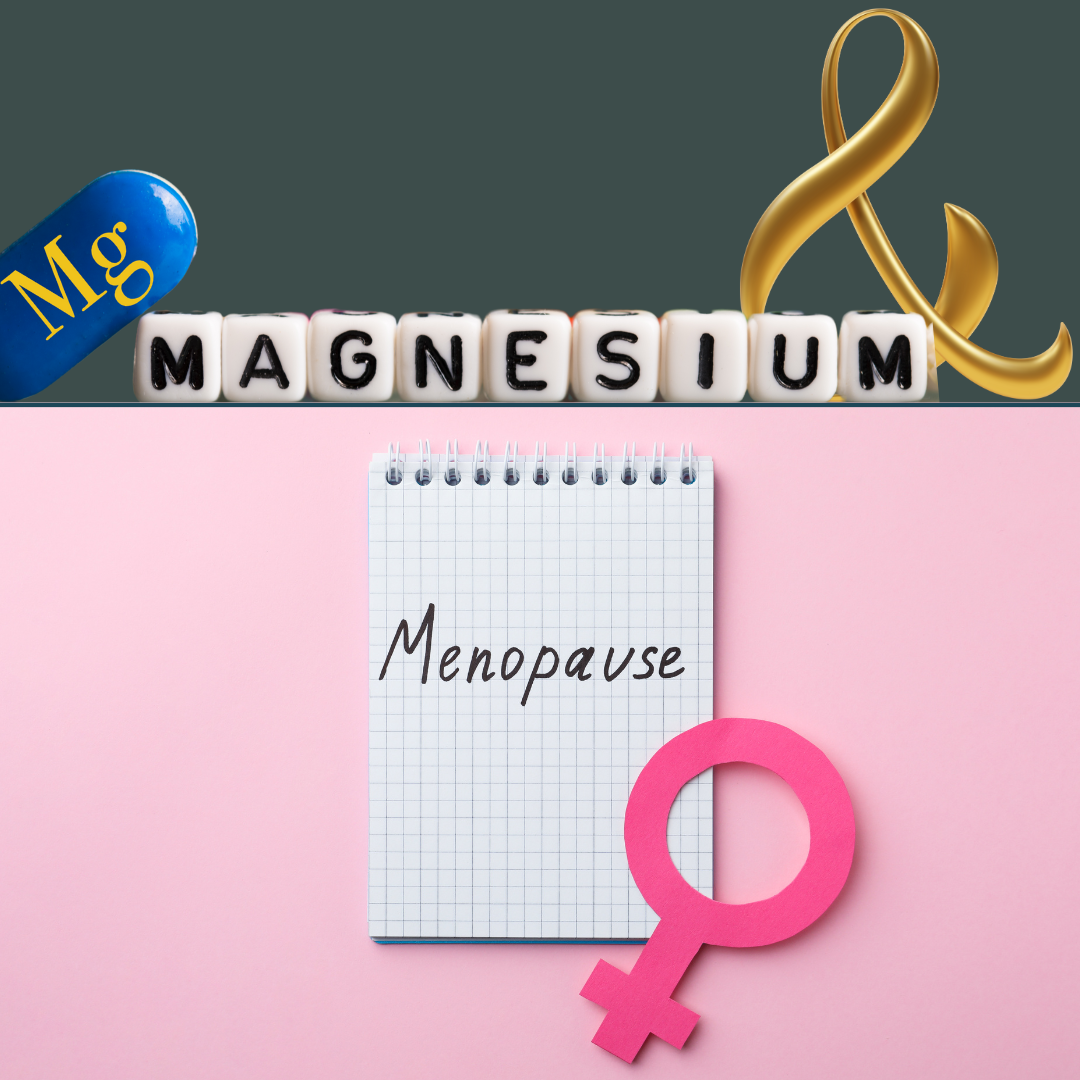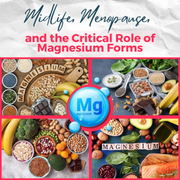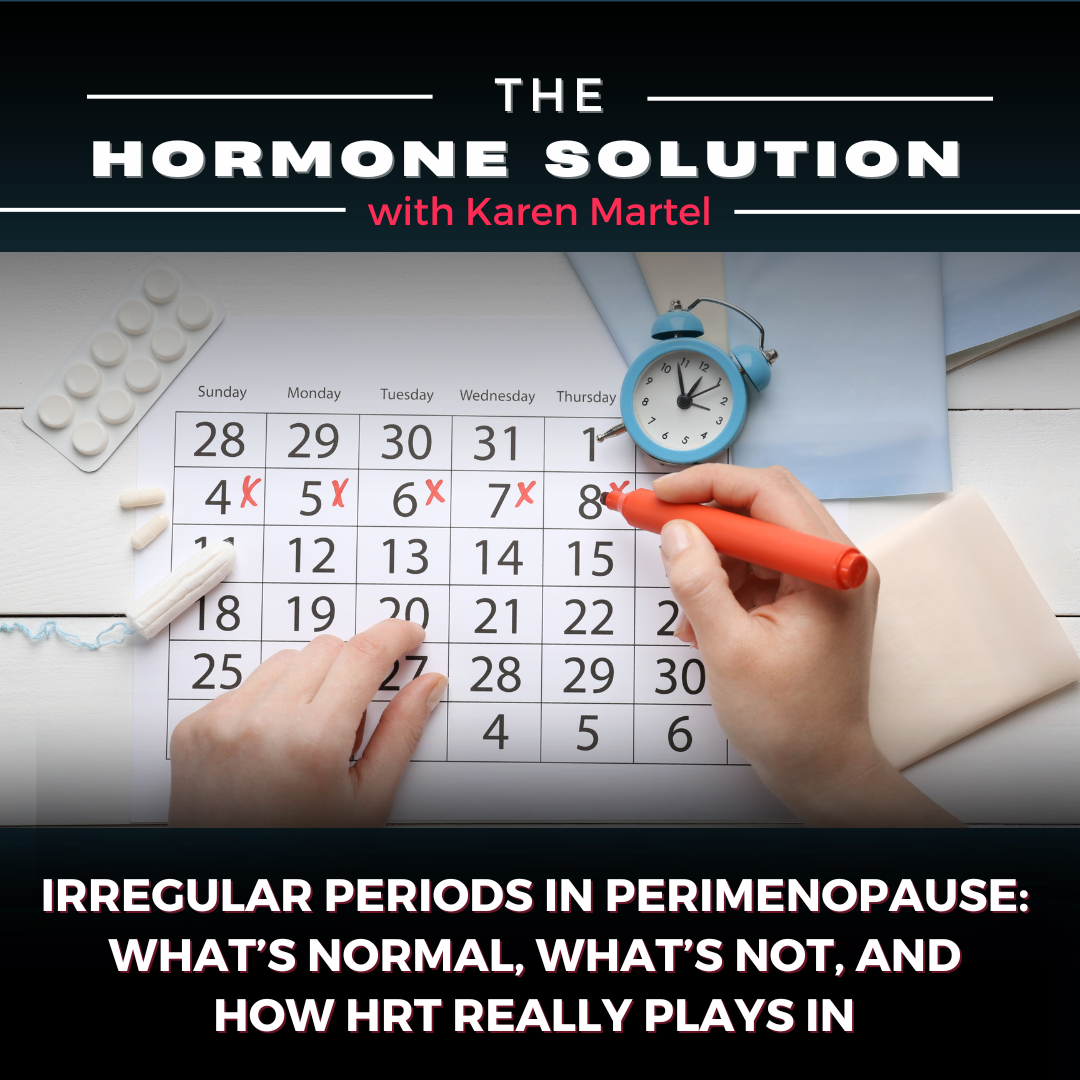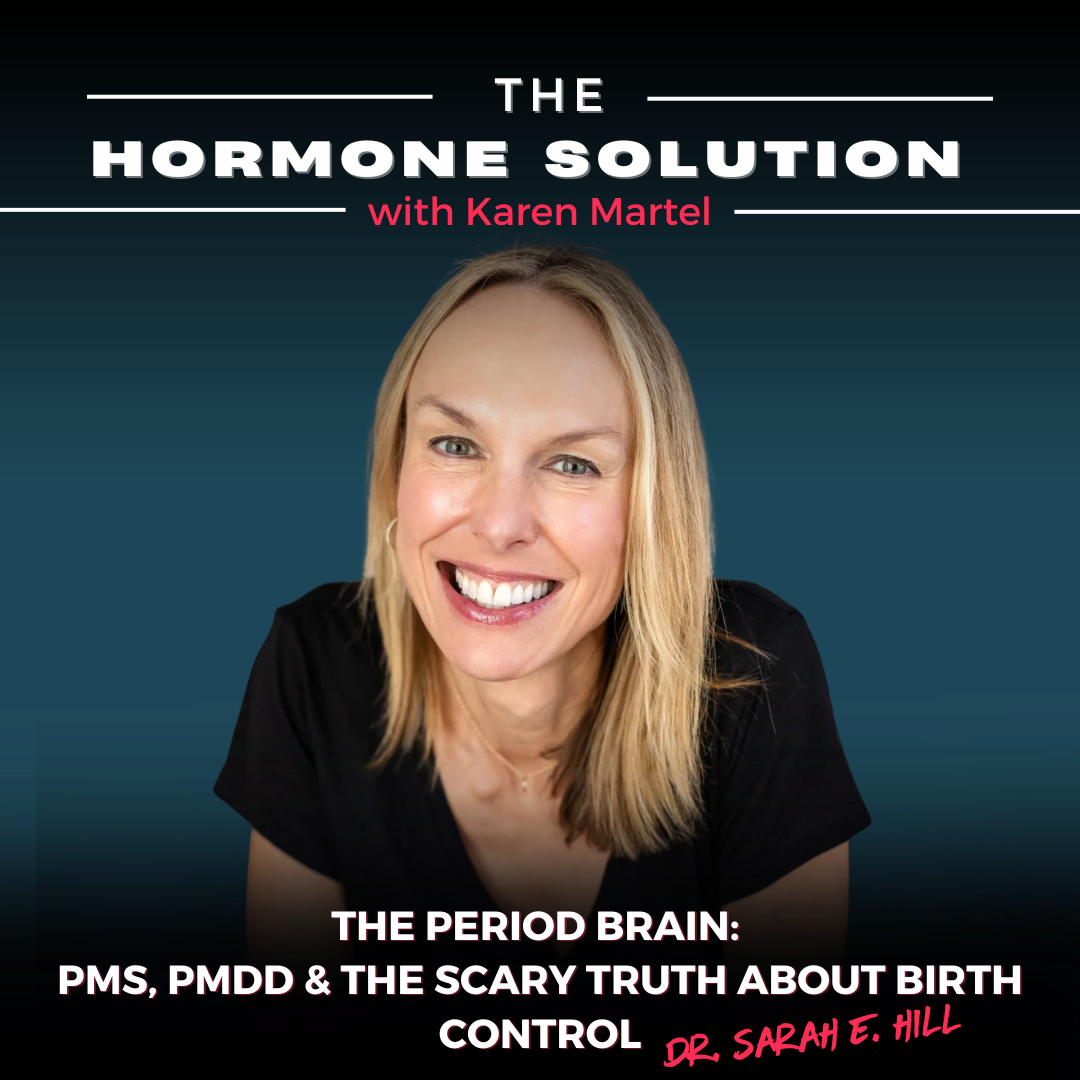
Magnesium & Menopause: What Every Woman Should Know
Magnesium isn’t just some “nice-to-have” mineral. It’s essential for over 300 functions in your body, including hormone balance, blood sugar control, bone strength, mood regulation, sleep, and stress recovery. So yeah—it’s a big deal. The kicker? Most of us aren’t getting enough. About 50–80% of adults fall short, and during menopause, when estrogen levels drop, magnesium absorption and retention take a nosedive. So even if you used to get by on your old habits, they might not cut it anymore. If your magnesium has been low for years, sticking to the bare minimum recommended dose (320 mg/day) might feel like trying to fill a pool with a spoon. You’ll get there—eventually—but it’s going to take a while. That’s why many health practitioners recommend a higher intake, especially if you're already deficient or struggling with symptoms.
Magnesium & Hot Flashes
Hot flashes? Oh yeah, magnesium touches that too. They’re one of the most frustrating parts of menopause—those random waves of heat, sweat, and anxiety that hit out of nowhere.
Magnesium supports your nervous system and helps regulate blood vessels and body temperature, which means it may reduce the frequency and intensity of hot flashes. Early studies looked promising—one found that more than half the women taking magnesium reported major improvements. But a larger follow-up study didn’t see a big difference between magnesium and placebo.
So the jury’s still out on this one. It may help, especially if you’re low in magnesium, but it’s not a guaranteed fix for everyone. That said, it’s a low-risk, potentially high-reward supplement—especially compared to doing nothing.
Sleep Struggles? Magnesium Might Help
Sleep is often the first thing to go during menopause. Whether it’s from hot flashes, mood shifts, or just not being able to shut your brain off at night—magnesium has your back.
It plays a role in melatonin production (your sleep hormone), GABA (your calm-down neurotransmitter), and even helps lower cortisol (your stress hormone). Clinical studies show that magnesium can help people fall asleep faster, improve sleep quality, and reduce nighttime waking.
So if your nights are a toss-and-turn situation, magnesium might be worth trying—especially before reaching for heavier sleep meds.
Mood, Brain Fog, and Mental Clarity
Your brain runs on estrogen—literally. When estrogen drops, your brain can feel like it’s lagging behind. Memory slips, brain fog, mood swings—it’s not your imagination.
Magnesium helps stabilize mood by supporting neurotransmitters like serotonin and dopamine, calming the nervous system, and improving how your brain uses energy. Research shows it can reduce symptoms of anxiety and depression, and may even improve memory and focus in older adults.
And since stress can make everything worse, magnesium also helps regulate your stress response, acting like a buffer when life throws curveballs (which, let’s face it, is often).
Magnesium for Weight & Belly Fat
Let’s talk belly fat. Menopause often shifts where fat is stored—hello, midsection. That’s partially because your body is trying to make up for the estrogen your ovaries stop producing. Unfortunately, this kind of fat is linked to higher health risks.
Magnesium plays a role in metabolism, insulin sensitivity, and hormone balance—all of which can impact your weight. It’s not a magic pill, but studies show magnesium supplementation can help reduce body fat and support lean muscle in women.
Pro tip: Many of those studies used magnesium oxide, which isn’t well absorbed. If you switch to a better-absorbed form, you might see even better results.
Choosing the Right Type of Magnesium
There are tons of magnesium types out there, and not all are created equal. Here’s a quick breakdown of some of the best forms for menopause:
-
Magnesium glycinate – Calming, gentle on the stomach, great for stress and sleep.
-
Magnesium citrate – Highly bioavailable, helps with metabolism and digestion.
-
Magnesium malate – Supports energy and muscle function.
-
Magnesium taurate – Known for cardiovascular support.
-
Magnesium orotate – Often used for energy and heart health.
-
Sucrosomial magnesium – Super bioavailable, even better than glycinate in some cases.
If you’re trying to correct a long-standing deficiency, choose a supplement with multiple forms for broader coverage and better absorption—like Magnesium Breakthrough, which combines 7 forms (8 if you go with the powder).
How Much to Take?
320 mg/day is the bare minimum for healthy women, but that’s just a starting point. If you’re already depleted, you might need more—sometimes double or triple that amount for a while.
The key is to go slow. Start with a moderate dose and increase gradually until you reach your "bowel tolerance" (the point before it causes loose stools). Then hang out at that dose for a few months, retest if you can, and adjust from there.
As always, check with your doctor—especially if you’re on medication or dealing with other health conditions.
Bottom Line?
Menopause is a wild ride, but magnesium can help you ride it out with fewer bumps. From hot flashes to mood swings, sleep struggles to belly fat—it’s one of the most versatile and well-researched minerals out there.
If you’re not already paying attention to your magnesium intake, now’s a great time to start.
Get 10% off your Magnesium with coupon code KAREN here.

Find Karen Martel on Apply Podcast
Karen Martel is a Certified Hormone Specialist and Transformational Nutrition Coach dedicated to empowering women through their health journeys.
As the host of the popular podcast The Hormone Solution, Karen tackles the complexities of hormonal health, weight loss resistance, and the challenges that come with perimenopause and menopause.
Her mission is to disrupt outdated narratives surrounding women's health, providing reliable information and practical solutions that help women reclaim their vitality.
Tune in to discover how to embrace life's stages while enhancing overall well-being.





